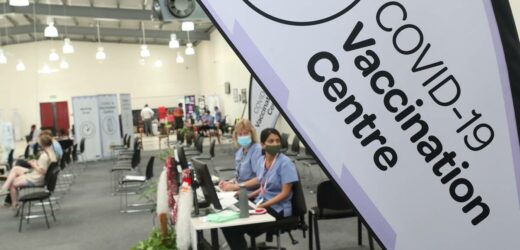A man who was vaccinated against Covid-19 up to 10 times in one day on behalf of other people has been called “unbelievably selfish” and sparked an investigation.
Astrid Koornneef, group manager operations for the Covid-19 vaccine and immunisation programme, said the Ministry of Health was aware of the issue and taking the matter very seriously.
“We are very concerned about this situation and are working with the appropriate agencies,” she said.
The ministry would not say where the incidents took place.
Vaccinologist and associate professor Helen Petousis-Harris called the behaviour “unbelievably selfish” and taking advantage of somebody who needs some money.
It could cause serious harm from the people who are not vaccinated, saying they are, and spreading the virus, she said.
Petousis-Harris said the man who took multiple doses of the Covid-19 vaccine is unlikely to come to any serious harm, but likely to feel crap the next day from a general immune response.
“We know that people have in error been given the whole five doses in a vial instead of it being diluted, we know that has happened overseas, and we know with other vaccines errors have occurred and there has been no long-term problems,” she said.
But Petousis-Harris said receiving multiple doses of the Covid-19 vaccine is not ideal, saying when people get given higher doses, they get more fever, pains and headaches.
It is believed the man, who is understood to have visited several vaccination centres, was paid for the jabs, according to Stuff.
Koornneef said people who have had more vaccine doses than recommended should seek clinical advice as soon as practicable.
“To assume another person’s identity and receive a medical treatment is dangerous. This puts at risk the person who receives a vaccination under an assumed identify and the person whose health record will show they have been vaccinated when they have not.
“Having an inaccurate vaccination status not only puts you at risk, it puts your friends, whānau and community at risk, and the healthcare teams that treat you now in the future.
“Medical practitioners operate in a high-trust environment and rely on people to act in good faith to share information accurately to assist with their treatment,” she said.
What’s more, Koornneef said, if a person was to receive a vaccination under an assumed identify their own personal health record would not reflect that they were vaccinated. This could affect how their health is managed in the future.
Source: Read Full Article

/cloudfront-ap-southeast-2.images.arcpublishing.com/nzme/YQWQJVBWFR4YZCCXQLTXET4R3U.jpg)

